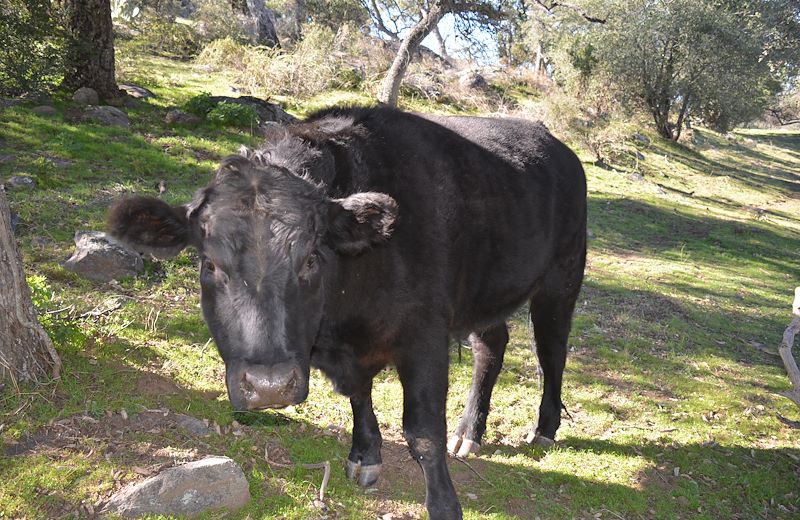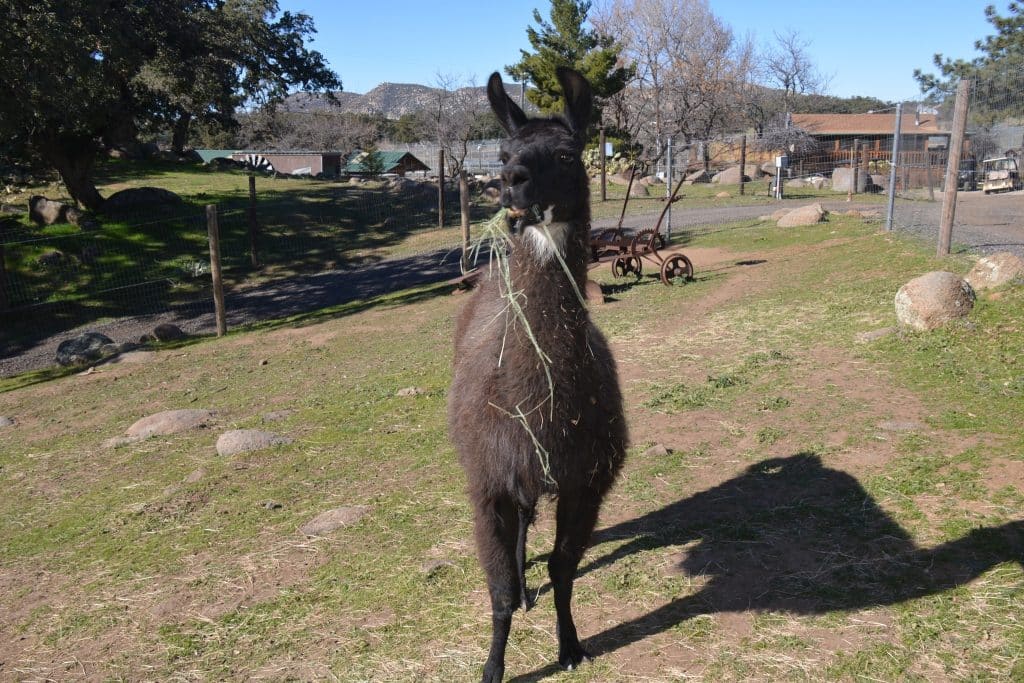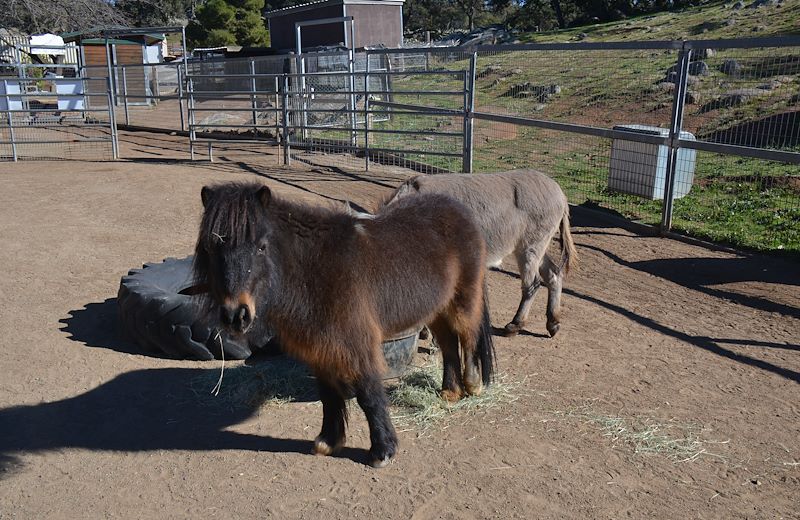
Farm animals are an important part of our lives. They serve as sources of companionship, and even therapy. But what most people do not know is that farm animals have feelings, needs, and desires. They form bonds with their caretakers and fellow herd members and experience fear, sadness, joy, etc. Yet, many farm animals suffer tremendously due to the conditions in which they are kept. From overcrowded and unsanitary living environments to the deprivation of necessities like shelter, or food and water, the realities of modern farming practices can be stark and distressing for these animals.
The livestock ranching industry is growing faster than any other agricultural sector in the world. However, this expansion often comes at a significant cost to animal welfare. In particular, animals raised for food, such as dairy cows and beef cattle, can be subjected to inhumane conditions and treatment. Dairy cows, for instance, endure rigorous milking schedules aimed at maximizing milk production.
The issue extends beyond traditional farm animals to include wild pigs. Despite their instincts and behaviors, they are often confined in cramped conditions or subjected to harsh handling methods, all in the pursuit of profit. There’s also concern about domesticating horses. While horses have a long history of partnership with humans, practices like overbreeding, intensive training methods, and inadequate care, can compromise their welfare.
This is why sanctuaries like Lions Tigers & Bears are at the forefront of raising awareness about the importance of ethical treatment and compassionate care for all animals. LTB also has an animal rescue site were rescued animals can get the care they deserve and enjoy a cruelty- free life.

LTB frequently participates in farm animal rescue operations all over the US. Here is how the process generally works.
Animal rescues typically begin with reports or alerts about animals in distress. These reports can come from various sources, including concerned citizens, law enforcement agencies, or animal welfare organizations. When we receive reports of animals in need, our team springs into action. First, we’ll provide a thorough medical evaluation before transport. Then we coordinate with authorities and other rescue organizations to safely transport the animals to our sanctuary.
Upon arrival at our sanctuary, the rescued animals receive immediate medical attention and are provided with a safe and comfortable environment. Our dedicated staff works tirelessly to rehabilitate the animals, addressing any physical or emotional trauma they may have endured.

The unfortunate reality is that many farm animals face neglect, abuse, and abandonment due to various reasons, including:
Some are victims of animal cruelty and exploitation. Through our efforts, we strive to give these animals a second chance at life and advocate for their welfare on a broader scale.
LTB is home to more than 19 different rescued species – including big cats and bears. But we also have horses, peacocks, goats, chickens, emus, sheep, mini horses, mini donkeys, llamas, cattle, a tortoise and a macaw at our sanctuary. We rescued most of these animals from local shelters, homes, zoos and other sources.
Some, like Sadie the Bengal cat, were rescued in 2016 from Spirit of the Hills Sanctuary in South Dakota. The sanctuary was struggling to care of its 360+ animals and was shut down after failing a USDA inspection. We rescued Sadie together with Denali, the serval, and the two are now best friends. We moved all 360 animals which included a lot of birds.
Then there's Soho, the intelligent blue and gold macaw we rescued in 2008. He loves to greet our staff and volunteers with a big "Hello" and a "Goodbye" when they leave. He cackles loudly and even bobs to some tunes. Blue and gold macaws in captivity can live up to 70 years. This means they're a lifetime commitment and often outlive their owners (and sometimes, most family members).
We also have Donashello, the sulcata tortoise, whose journey to our sanctuary began when his elderly owners could no longer care for him. When they reached out to us for help, we opened our doors to offer him the lifetime care he deserves. Now, Donashello enjoys the serenity of our sanctuary, where he can explore at his own pace and live out his days in peace.
Our farm animals include Jack, the miniature donkey, and his friend Spirit, the miniature horse, Margarito and Martine, the cows, along with Dusty, the mare, and Khaos, the gelding.

LTB is an accredited reputable farm animal rescue in California, committed to making a positive impact on animals' lives. We fulfill an essential role by rescuing farm animals who would otherwise most likely suffer from inhumane conditions.
Upon arrival at our sanctuary, farm animals undergo rehabilitation to heal from physical and emotional traumas. Our dedicated team of caretakers provides medical treatment, nutritional support, and behavioral enrichment to help these animals recover and thrive. From providing spacious, species-specific habitats and nutritious diets to offering veterinary care and emotional support, we ensure that every animal receives the highest standard of care for the rest of their lives.
In addition to providing direct care for farm animals, LTB advocates for their welfare on a broader scale. Through educational programs, outreach initiatives, and advocacy efforts, we raise awareness about the plight of farm animals and promote compassionate and ethical treatment for all animals.

You can make a meaningful difference in the lives of farm animals by supporting Lions Tigers & Bears in various ways. One option is to make a tax-deductible donation to LTB, which directly contributes to the care and well-being of farm animals in need. Your financial support helps cover costs associated with rescue operations, veterinary care, habitat maintenance, and ongoing enrichment programs. This is why it’s important to make sure you only support accredited sanctuaries.
We also have volunteer opportunities for those who are passionate about animal welfare to get involved firsthand. There's a lot you can do as a volunteer at LTB. You can help with daily care tasks, participate in habitat maintenance projects, or engage in educational outreach efforts. Your support makes a positive impact on the lives of animals and promotes a more compassionate world for all beings.

Ph: 619.659.8078
Fx: 619.659.8841
[email protected]
24402 Martin Way, Alpine, CA 91901